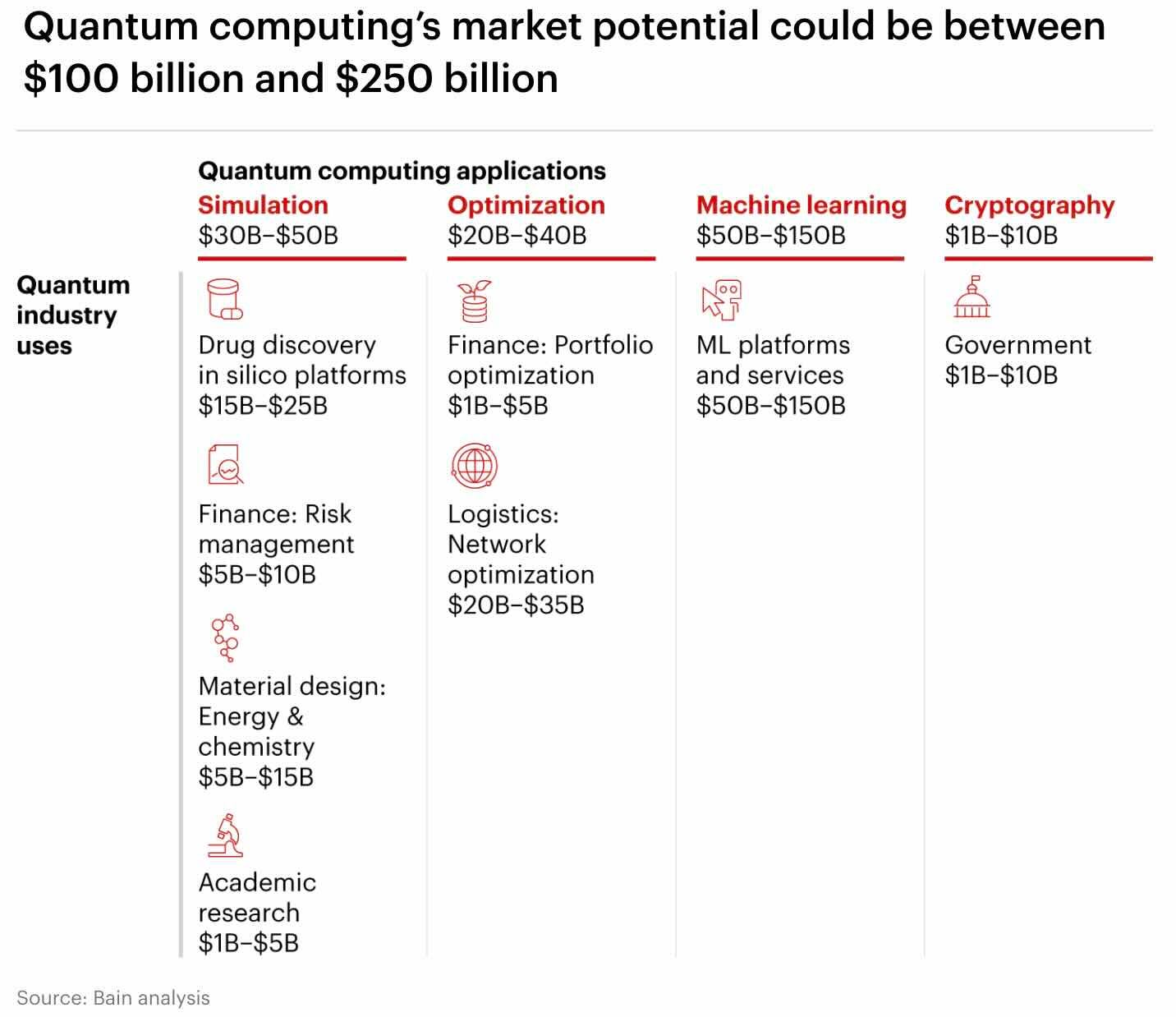The Clock is Truly Ticking on Quantum Computing
MSPs and vendors who understand a strange and very new technology when it arrives will have first-mover advantage on making serious money.
It’s been a while since I’ve written about quantum computing, but not because the field has been standing still.
To the contrary, just in the last couple of months, multiple experiments have provided the first apparently concrete proof of the long-theorized advantage enjoyed by quantum computers over classical ones. Shares of quantum computing-related stocks spiked upwards just last week after JPMorgan Chase said it plans to invest in the technology, perhaps because rival HSBC is beginning to get results using quantum processors to optimize bond trading.
Hardware maker PsiQuantum, meanwhile, recently closed a $1 billion Series E round led by BlackRock with support from NVIDIA that values the company at $7 billion, and it hardly has the market to itself.
“I count 85 different companies creating quantum computing hardware,” says Dr. Bob Sutor, CEO of Sutor Group Intelligence and Advisory, who covers the industry on his Substack. Maybe 10-15 will survive, he estimates, but those that do will be well positioned to grab a share of the $100 to $250 billion of market potential Bain & Co. expects quantum computing to unlock in coming years.
Those coming years won’t start arriving in earnest until the next decade, which is why NIST won’t deprecate the RSA-2048 and ECC-256 encryption algorithms, both of which are crackable by quantum machines, until 2030 and won’t ban them outright until 2035. Yet consider this post a reminder that you do not have plenty of time to prepare for the post-quantum future.
“Never in the history of computing have we seen things slow down. There have always been cases of new innovations, new techniques, and new ideas driving timelines faster than was originally predicted,” says Tim Callan (pictured), chief compliance officer at Sectigo and vice chair of the cross-vendor Certification Authority Browser Forum. “I expect to see a similar thing here.”
In the meantime, adds encryption expert Dr. Kurt Rohloff, who’s also co-founder and CTO of secure data collaboration vendor Duality Technologies, now’s a great time for MSPs to start getting quantum-ready by educating themselves on the technology. “Can you speak intelligently about what this quantum thing is?” he asks. “Where in your company is quantum somehow going to affect you?” Answering such questions is more than practical these days, according to Callan.
“This would have been hard even a year ago, certainly two years ago, because there was much less material,” he says. “Today, not very.”
And once they know a little about quantum computing generally and post-quantum cryptography specifically, MSPs can begin sharing that knowledge with their customers. “They can give concrete advice, they can drive initiatives, they can put technology in place,” Callan says. “This is where MSPs shine.”
Those with development skills are likely to land plenty of project work eventually as well. Software vendors will add post-quantum cryptography functionality to most commercial applications, Callan predicts, but businesses will need help readying custom ones.
“What we’re anticipating is that a lot of stuff will go really smooth and then there will be a long tail of difficult things, where those difficult things involve mission-critical systems with critical secrets,” he says.
Rohloff foresees plenty of work for pen testing service providers too. “This could be an extension of existing lines of business where organizations could set up quantum-secure pen testing,” he says.
Sutor, for his part, urges vendors to start thinking about quantum computing as well as MSPs. “If I had software engineers on staff, I’d be saying you need to spend 5% of your time right now learning about what this quantum computing stuff is,” he says, noting that there are things you take for granted in classical coding that are impossible in quantum. Like, you know, copying data.
“If you have some data and you want to give it to me, you can do that, but it destroys your copy in the process,” he says, noting that this isn’t some thorny little hiccup we’ll figure out a fix for eventually. “It’s a fundamental part of quantum mechanics and the way the universe works.”
Which means that leveraging the massive power of quantum computing is something you’ll have to do somehow without databases. See why it’s not too early to start thinking about this stuff? Yes, it’ll be years before the promise and peril of quantum computing begin transforming IT economics the way AI is doing now, but none of us knows how many.
“It’s very hard to schedule innovation,” Rohloff says.




